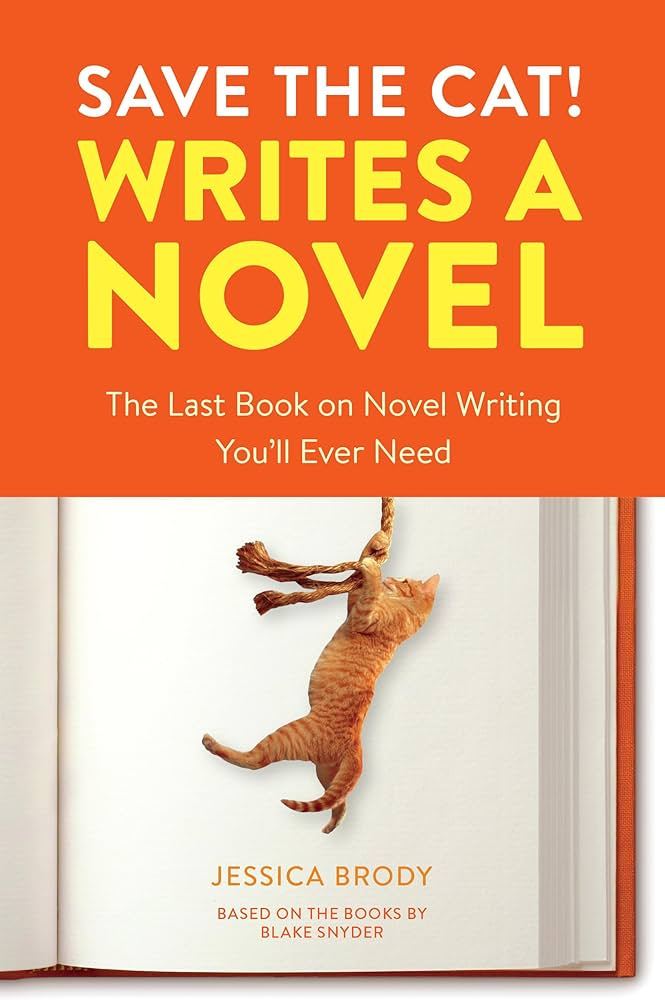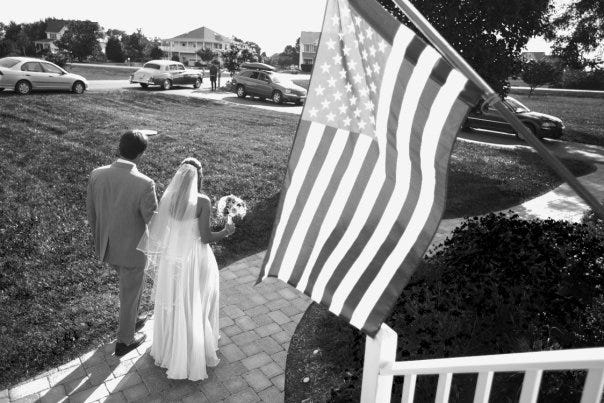Write Yourself Into a New Story
How memoir allows us to reclaim our narratives, crack open new chapters, and find peace on trauma anniversaries
Twelve years ago today I woke up to discover my husband never came home.
If you know me or read Love You Hard, you know the story. My husband, TC, was assaulted on his walk home from a baseball game only blocks from our house. He was robbed, hit with a baseball bat, and left for dead on the street. By some miracle, he survived.
These are strange, blunt words to type, though my mouth no longer gets twisted trying to form the shape around them. I’ve simply been forced to say them too many times. While we regard today, August 18th, as TC’s Alive Day, a celebration of the gift of his life, it’s also the dividing calendar day of our family’s life: the abrupt marker of before and after, the origin point of a story that transformed everyone involved.
When someone asks what my memoir is about, however, I hesitate to center my answer around my husband’s brain injury. A memoir, after all, is never just about one thing. It’s about how that event (or multiple events) rewired one’s neurocircuitry. It’s about the author’s response to the bad thing.
One of the oddities about putting a memoir into the world is the delay between those events and a reader holding your story in their hands. When I wrote my book, I was no longer a shell-shocked 30-year-old woman trying to reconstruct my understanding of real love and how the world worked. I was a solid, thriving survivor of trauma, a multi-fold caregiver, nursing my infant daughter in one arm and typing my story with the other.
By the time the book came out in 2019, I was seven full years ahead of my readers, a different person than the one they were just being introduced to. The story in which they were immersed was an old one. By putting it on the page, I’d written myself out of it and into a brand new one.
That’s the power of memoir.

It’s one of the reasons memoirists feel compelled, on a cellular level, to record their story. Recording = releasing. Penning one’s narrative is a way of reclaiming agency after a prolonged loss of control. It allows the author to shape their experience into something utilitarian, instructive, and indelible. For me, it was an opportunity to reframe victimization and spotlight the possibility of growth when life doesn’t go according to plan.
On Friday I had the privilege of joining an intimate conversation with a group of aspiring memoirists. The advice I shared centered on one important principle:
We can write ourselves into the next chapter of life.
I’m not arguing all trauma survivors must publish a memoir, or even write one in order to heal. But I do think our stories are like balls of clay: they must be touched, molded, and intentionally engaged with if we want to construct meaning from them. Stories require our crafting. They demand our attention. And if we refuse to give it, they can become an outsized, dominating feature of our lives.
In publishing a memoir, my goal was not to become the go-to “brain injury girl” or a self-proclaimed expert on caregiving. While I’ve been honored to speak on those topics and in the company of awesome groups, I do not wish to spend a lifetime repeating this one story. I consider myself first and foremost a writer. And there are so many stories worth telling.
I’m often asked whether it was therapeutic to write the book and it’s a question I’d be curious to hear other authors reflect on. For me, the answer is sorta. At no moment in the writing process was it “fun” or obviously cathartic, but I also didn’t anticipate how liberating it would feel to put our story to bed in the form of a book. It forced me into a new realm of acceptance about the events that transformed us, one that allowed me to stop forcing sense out of the nonsensical and begin living anew.
So, that’s the rub. If you’re sitting on a memoir and trying to break through, there are so many reasons I hope you’ll persevere. It is empowering to write our stories - not so that we can live inside them forever - but so we can leverage their power in our own healing and carve a path to new beginnings.
In a world that is trauma-saturated, imagine the possibilities this holds:
For kids and teenagers reckoning with identity and violence.
For survivors of global conflict and crimes against humanity.
For those who have experienced any variety of assaults on their bodies and souls.
Imagine the power of laying claim to those stories and harnessing the narrative simply by writing them down.
Today is like any other quiet Sunday around our house. TC and Rosie are drawing together at the kitchen table. Jack is organizing his school supplies before his first day tomorrow. I am happily tucked away at my desk writing. We’re grateful to be commemorating this important day in exactly the way it’s intended: living out our next chapter.
Memoir Writing Craft Recommendations
I’d love to claim I read any craft books before writing my memoir, but the truth is that I went in blind and alone and I wouldn’t recommend that approach to others. If your ultimate goal is publishing, figuring out how to best tell your story is an imperative part of the journey


Saves the Cat! Writes a Novel: This book is geared toward fiction writers but its explanation of how to plot a traditional narrative arc has equal utility to memoirists. Learning the specific beats of a novel-length story will help you figure out a blueprint for your own true story.
Body Work: The Radical Power of Personal Narrative: If Saves the Cat is the memoirist’s tool for plotting and structure, Body Work is its essential companion in safely, effectively, and meaningfully excavating our stories. Febos tackles the emotional work of writing in this intimate genre.




I could relate to what you wrote on so many levels. In writing my memoir about the ten years I cared for my husband who had multiple sclerosis, I came to view those years through a different lens - one more distanced and more discerning. I realized the many ways I had grown and changed as I tackled the challenges of being his caregiver. It was empowering to write my story, and I hope it can inspire and empower other caregivers as well. It's called Watching for Dragonflies: A Caregiver's Transformative Journey. And what a journey it was!
Whoa. I'm stunned. I mean, I was so taken aback that I stumbled, which isn't that impressive, because I read whilst walking. JOKE. I'm joking. Which I write only because I'm new and not sure about the temperature... Sorry, just realized people read and walk all the time: their phone. I was picturing folks glued to a paperback and foolishly stepping into midtown Manhattan traffic. I'm such a lame luddite. I've been my sisters caregiver for 19 years, in fact, her alive day was Aug 17 2005. The phrase of "rewired one's neurocircuity" caught my eye. I'm trying to deal with the emotional knots and I'm burnt out. In need of extended break. Aside from a week hither and yawn... Ya get it. I enjoyed your words and thank you for giving me a new direction to research.